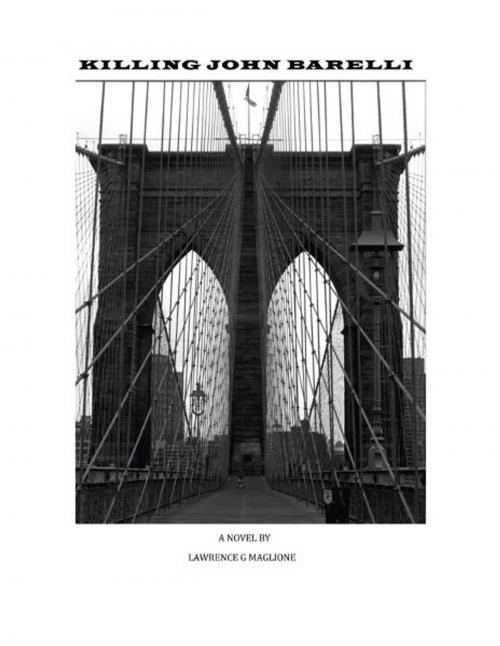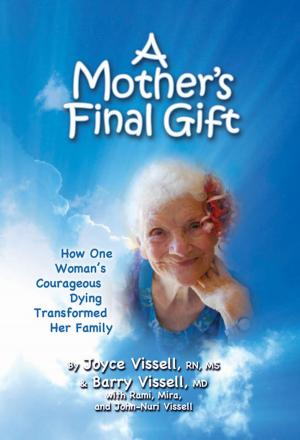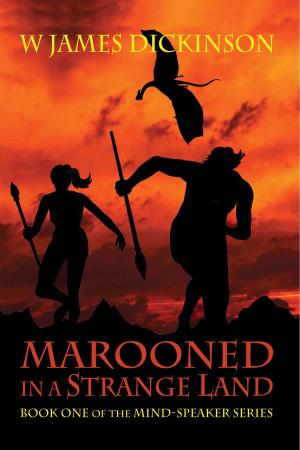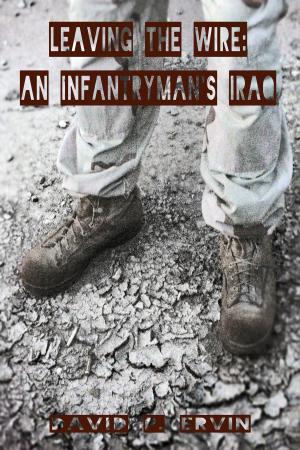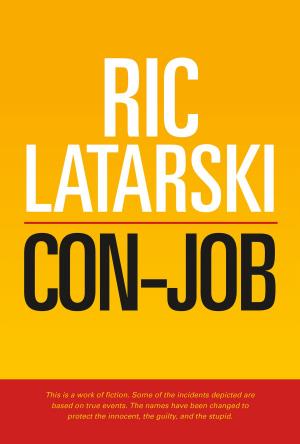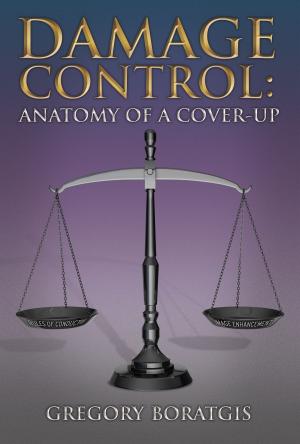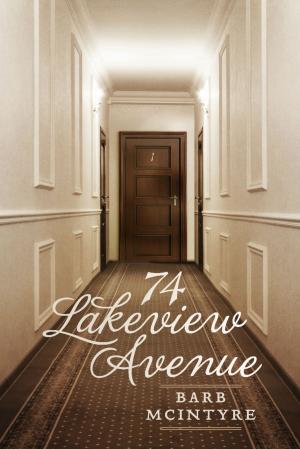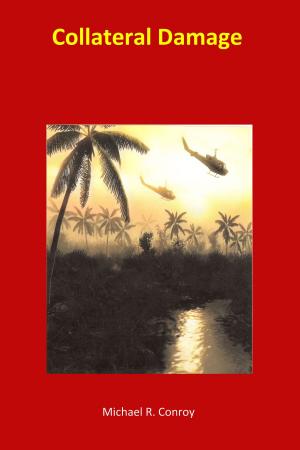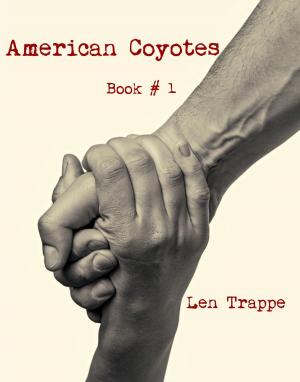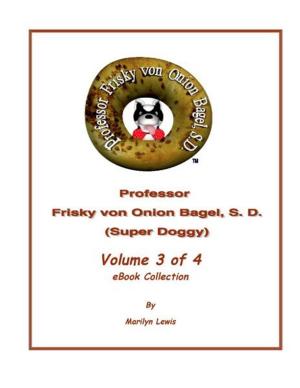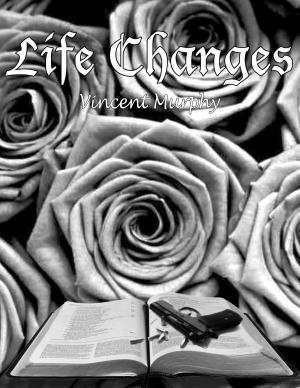| Author: | Lawrence G Maglione | ISBN: | 9781618420084 |
| Publisher: | BookBaby | Publication: | September 1, 2011 |
| Imprint: | Language: | English |
| Author: | Lawrence G Maglione |
| ISBN: | 9781618420084 |
| Publisher: | BookBaby |
| Publication: | September 1, 2011 |
| Imprint: | |
| Language: | English |
John Barelli, a collection agent for local bookmakers, enters the Francesi’s Salumeria in Bensonhurst, Brooklyn, where Nicky Morello works as a stock boy. It is 1972 and Barelli has come to collect the past due debt of the storeowner’s son, a degenerate gambler. Nicky follows Barelli as he drags the aging proprietor out into Eighty-sixth Street, where he begins to beat him. A crowd of midday shoppers surrounds the two men, as the elevated B train roars by above. When no one comes to the old man’s defense, twelve-year-old Nicky leaps on Barelli’s back. The boy’s small hands grab on to the gangster’s eye sockets. When Nicky realizes the futility of his situation, instincts takeover. Suddenly, Barelli howls in pain. Nicky likens the gangster’s scream to that of a zebra he had seen in a PBS documentary, when a cackle of hyena’s locked their jaws on its hindquarters. Two strong arms lift Nicky above the fray, and, before Barelli can identify him, beyond the perimeter of the crowd. As seventy-two year old Amodeo Francesi lies unconscious near the curb, a bleeding Barelli offers a c-note to anyone in the crowd who will identify the kid who bit off his ear. No one responds. The sound of screeching rubber follows Barelli’s fishtailing cherry red, Caddie Eldorado convertible down the street, leaving in its wake an acrid cloud of smoke to settle on the scene of his depravity. Thirty-five years later Niccolo Morello PhD, Chair of NYU’s History Department, lectures a class on the papacy of Alexander VI, the last Borgia Pope. The class enjoys the wisecracking, street-smart perspective their bespectacled teacher brings to the subject. Nick explains how the Pope appointed his two illegitimate sons, Cesare and Juan, cardinals and how he defiled his daughter Lucretzia, who produces a third son, the Infans Romanus. One morning Juan’s body is found floating in the Tiber. He has been stabbed to death, historians believe, by his brother Cesare. The lecture is the allegorical basis of Killing John Barelli, a first person narrative about Nick Morello, a forty year old widower, who stumbles on to a dark secret: his wife-to-be Nora Waites was raped, when she was a child, by her father the Governor of Connecticut. Nick gets a last minute call from Nora inviting him to dinner at the Four Seasons with her parents, on the last evening of their weeklong stay in New York City. Nora hasn’t spoken to her parents in years and is suspicious of their intentions. Towards the end of the evening, the Governor tells Nora he wants to use the Waites School for Emotionally Challenged Children, left in her charge by her philanthropic grandfather, as collateral for an $8 million loan. Nora is shocked and tells her father it would be a violation of her fiduciary responsibility to approve anything that would accrue to the personal benefit of a family member. She’s embarrassed that her father would discuss family business in front of Nick. Her father persists; saying her brother Roy has interpreted a codicil in their grandfather’s will that permits such an arrangement. Nick sits quietly, taken aback by the lack of warmth demonstrated by Nora’s parents, and how the dinner evolved into a business meeting. Nora’s mother Estelle, is silently aloof, decidedly inebriated and ignores Nick’s attempts at conversation. He compares Nora’s parents to his own fractured family, and appreciates his good fortune. After dinner, Nick and Nora go to Nick’s penthouse home on the Upper Eastside to discuss her father’s proposal. Nick’s teenage daughter, Lori, and his stepfather, Albert Denton, greet them. Nick recalls how he was just eleven, when his father failed to come home from his job as a bartender one night, never to be seen or heard from again. Several years later, his mother remarried and the family went from abject poverty to living in a fourteen room penthouse on NYC’s Upper Eastside, owned by Albert Denton, an independently wealthy attorney, who adopts Nick, his younger brother James and their baby sister, Michelle. Albert makes sure his children get excellent educations, and each becomes a success in their chosen field. Nick becomes a history professor and marries Lorraine, an Italian exchange student, working as his graduate assistant. He goes on to write several books on the Renaissance and two become bestsellers. James graduates at the top of his law school class, at Yale, and enjoys a successful career as a merger and acquisitions specialist, until he gives it all up to open a series of equally successful restaurants. Four years younger than Nick, Jimmy lives on the Upper Westside, has been divorced three times and has no children, much to the consternation of his stepfather. Michelle, their baby sister, becomes a biochemist, achieving acclaim while doing research at Rockefeller University, just blocks from Albert’s penthouse. Their lives are those of the privileged class, quite unlike that which they would have experienced had they remained in Bensonhurst. Fate strikes again fifteen years later, when on a Sunday afternoon while Nick and Albert baby sit four year-old Lori, the phone rings and they learn that Nick’s wife Lorraine and his mother are killed in an auto accident, on their way back from a day of shopping in the old Bensonhurst neighborhood. Nick and Lori move from Upper Montclair into Albert’s penthouse and Lorraine’s mother, Nina, stays on after Lorraine’s funeral to help her son-in-law and his father raise her grand daughter. It’s a fractured family, but one filled with the kind love born of tragedy. Nick struggles with Lorraine’s absence and, when the drugs prescribed by several psychiatrists fail, Nick turns to self-medicating. He begins snorting heroin, which enables him to get through the day while he continues to teach history at NYU. Nick becomes a functional addict and spirals downward until one evening he fails to come home. Police from the nineteenth precinct find Nick, early the next morning, unconscious in the garden behind the Frick Collection on Fifth Avenue. Albert is understanding, but firm, and the next day he flies with his son to Minneapolis, where Nick is admitted to Hazeldon. Nick describes the remorse and pain of being apart from his daughter for six weeks. What gets him though it are the letters he gets everyday, from little Lori, containing crayon drawings of four stick figures holding hands, with the sun shining down on them. Nick is discharged and finds a limo waiting at the facility gate. He opens the car’s door and finds five-year-old Lori inside sitting on Albert’s lap. Several days later, two grad students in NYU's IT Department, who took Professor Morello’s Renaissance History 101 as an elective, provide him with a report of recent spending activity for the social security numbers of Nora’s parents and her brother Roy. They have uncovered one irregularity. Nora’s parents have been making monthly donations of $50,000 for years to the Church for a New Resurrection, a non-denominational house of worship in Spanish Harlem, over one hundred miles from the Waites Estate in New Britain, Connecticut. The grad students inform Nick that three of the church’s deacons have criminal records, and the pastor Father James Berenio was expelled from theology school some years ago. Nick hears Sunday Mass at the church and finds it in a state of disrepair, even though the service is well attended by low-income Hispanic parishioners, who are rapt as the young priest delivers a fiery sermon. After several failed attempts to contact Father Berenio, Nick gets an ominous phone call from one of the church’s deacons instructing him to appear at the pastor’s Brooklyn office at 6:45 PM that evening. When Nick arrives at the address, he finds a nondescript bar not unlike the one where he spent late afternoons as a child with his birth father, waiting for his mother to pick him up on her way home from her secretarial job in the city. Nick enters and finds it vacant except for the bartender drying glasses at the far end of the bar. He offers Nick a drink and begins to laud him as a neighborhood kid who made it big. He mentions having read two of Nick’s books on the Renaissance. Nick’s heard the man’s voice before, but he can’t attach a name to it. The bartender pours Nick a Chivas and the tone of their meeting turns decidedly businesslike. He tells Nick that the Governor is having trouble meeting his monthly obligation to the church and, since Nick is marrying into the family, he expects Nick to cover his future father-in-law’s pledge. The bartender’s research on Nick is as complete, as Nick’s is on his prospective in-laws. The bartender tells Nick that his responsibility will end when the mortgage on the Waites School comes through, and suggests Nick encourage Nora to approve the loan. Nick laughs at the idea that he would be expected to make good on his future in-law’s pledge. As the bartender responds, Nick notices how his hair is cut to hide the absence of his left ear and it suddenly becomes clear that the man is none other than John Barelli. Nick had stopped following the racketeer’s career years ago, after Barelli was sentenced to life as a three-time loser. Barelli had been convicted of mixing toxic liquid waste with fuel oil and then selling it to residential home heating customers, throughout Brooklyn and Staten Island. Nick remains cool; confident that Barelli doesn’t recognize him from that fateful day, outside of Francesi’s Salumeria on Eighty-sixth Street. Barelli casually mentions that Nick’s his future father-in-law has an affection for young girls. Nick is confused by the apparent non sequitur. Barelli smiles the smile of the only one in the room privy to a secret. He tells Nick that he is blackmailing the Governor Waites, with evidence that he raped his then twelve-year daughter, Nick’s wife to be. Nick is stunned and grabs on to the bar rail for support. Barelli pours Nick another Chivas. Nick gulps it down, while Barelli roars in laughter. Nick finally regains his composure and tells Barelli he needs time to consider his proposal. Nick gets up to leave, but before he does, he leans against the bar and locks his gaze on to Barelli’s. Nick suggests Barelli change his disco era hairstyle, to better conceal the absence of his ear. Barelli is angered by Nick’s audacity as Nick continues, casually mentioning how he and his childhood friends still laugh whenever they get together about the day when he bit off Barelli’s ear. Nick asks Barelli if it’s true that he sautéed his ear, with some broccoli rabe, for dinner that evening. Barelli is speechless as Nick turns and strides confidently out of the bar. Nick struggles to get to his car, no longer in character as the wise cracking kid, who once took down Brooklyn’s toughest wise guy. He reels and leans into the street and vomits. Once inside his Audi Nock collects himself and as he drives away he cannot stop the tears from streaming down his face. Not knowing where to turn Nick instinctively calls his brother Jimmy. Jimmy is preparing to open his restaurant but tells Nick to stop by in an hour so they can have dinner together. Nick stops at a local bar, collects himself and calls his future father-in-law, former Connecticut Governor, Henry Waites to invite him to lunch the next day at the University. The Governor is at first hesitant to accept the invitation, but becomes receptive after Nick tells him to bring the paperwork for the loan as he’s persuaded Nora to approve the mortgage. When Nick arrives at Jimmy’s restaurant, he finds their older Cousin Joe, a former army Ranger and retired NYPD detective, waiting at the bar. The three men haven’t been together in a while and Nick suspects Jimmy called Joe, after detecting concern in his voice over the phone. Nick conveys the substance of his meeting with Barelli and the trio discusses how to best deal with him. None of their solutions guarantee that Nora’s rape will not reach the media. Joe sarcastically suggests the only way stop someone as malevolent as Barelli, is to kill him. By the end of the evening they have put into motion a plan to do just that. The next day, while he waits for Henry Waites, Nick sits in his office wrestling with the irony of how killing Barelli will most likely assure that the Governor goes unpunished for defiling Nora. When Henry Waites arrives, Nick is cordial and offers him a drink. Waites sips a bottle of Perrier as he arranges the loan documents on the coffee table. Nick appears preoccupied at his bookshelf, trading small talk with Waites, while he locates a thick college directory. As the Governor sips his drink, Nick winds up into a two hundred and seventy degree arc and slams the large book across the Governor’s face. Nick waits patiently until the Governor recovers and then he hits him again on the opposite side of his face, knocking him out. When the Governor regains consciousness, Nick pours the remainder of his Perrier over his head, before taking a seat on the wing chair directly opposite him. Nick asks him very pointedly if he raped Nora. Governor Henry Waites stares at his knees. Nick asks him again if he raped Nora and then waits. After several minutes the Governor admits he twice raped his twelve-year-old daughter. Nick asks if he’s abused any other children since then, and his aristocratic prospective father-in-law remains decisively silent. Finally, Nick dismisses him, but not before admonishing him not to discuss their meeting with anyone. If he does, Nick warns, he will drive up to New Britain and stick an ice pick in his ear. Henry Waites leaves without uttering another word, not even stopping to retrieve the expensive silk handkerchief left on Nick’s sofa. Nick arrives at Nora’s apartment Thursday evening, and teases her about becoming a traditional Italian bride, when he finds her rolling out ropes of a mixture of potato dough for gnocchi, Nick’s favorite. They stop for a moment and Nick holds her, while they gaze out the window that overlooks the backyard garden. Nora comments on how fortunate they are to have each other. They enjoy a quiet dinner together, sharing snippets of gossip about the co-workers at the University and at Nora’s school. As they sip their after dinner espresso, Nick tells Nora what he learned from the two grad students in the IT Department and how it led him to the Church for a New Resurrection in Spanish Harlem, and finally to a bar in his old neighborhood sitting across from John Barelli. Nora stiffens, when Nick hesitates. Nick is no stranger to adversity and knows he must be completely honest with Nora. He tells her what Barelli said and how he confirmed it with her father. Nora breaks down, but is relieved that Nick finally knows her secret. She describes how her brother John was found dead, an apparent suicide, the week after she told her mother that her father had raped her, and then how she went to live with her maternal grandmother when her family ostracized her. She tells Nick the reason she never told him about it was because she felt he had enough to deal with, having to care for his father and Lorraine’s mother, while raising Lori. Nora is, at first, aghast of Nick’s plan to murder Barelli, but Nick tells her it’s the only way to stop him. If they go to the police, the story of her rape will inevitably be made public. Nick begins to explain how he first came to know Barelli. Nora interrupts him and asks Nick to repeat the bartender’s name. She ponders on it for a moment and then goes into her bedroom. Nora returns with the seating plan for her school’s annual dinner, next Tuesday, at the Plaza. Sitting at the dais, as her father’s guests, will be John Barelli and Father James Berenio, who is scheduled to lead the congregation in a pre-meal prayer. Nora now realizes what’s at stake. Nick tells her that he will take care of Barelli, but refuses to share the details of his plan, in case things go awry. Nick calls Barelli the following day and agrees to pay the blackmail, but only until the mortgage on Nora’s school comes through. He refuses to write a check to the church for fear the IRS or FBI will discover he’s made a fraudulent donation. Barelli offers to send one of the church’s deacons to Nick’s office to pick up the money. Nick counters that he’ll only agree to make the exchange in cash, face to face. Barelli finally breaks the stalemate by suggesting they make the exchange Tuesday, at the Waites School Annual Dinner. He has played right into Nick’s hands. Nick agrees, in part, telling Barelli that he’s a silent partner in his brother Jimmy’s restaurant, where his share of the profits are kept in the restaurant’s safe. Nick convinces Barelli that they can sneak away from the dinner; take a cab to Jimmy’s restaurant to pick up the $50,000 and return, before their absence is noticed. Nick acts intentionally naive as a ruse, when he tells Barelli not to get any ideas about robbing the restaurant. Nick returns home that afternoon and the doorman tells him he has a visitor, a rude one by the name of Roy Waites, who he admitted only after Lori recognized his name. Lori greets her father with a hug and is relieved, telling her father how she coaxed Roy out to the terrace after he insisted on smoking, and then locked the terrace door behind him. Nick tells his daughter to take her grandmother upstairs and to wait there. Nick is excessively cordial; acting pleasantly surprised, as he picks up the two expired cigarette butts off the terrace floor and greets his prospective brother-in-law. Nick describes Roy as looking much like he did, when he was snorting heroin, clad in expensive clothes but unkempt, perspiring as he lights a third cigarette, his pupils dilated, struggling to maintain eye contact. Roy’s response is awkward. He thanks Nick for continuing to honor the family’s pledge to the Church of the New Resurrection and describes Mister Barelli, as an old family friend. Nick plays along and says his brother Jimmy is making some minor changes to the loan documents and should have them ready for Nora’s signature, in a few days. Roy appears satisfied with this news and appears anxious to leave. Nick realizes Roy’s father sent him to feel him out, without disclosing to his son, the substance of their meeting in Nick’s office. Nick concludes the Governor and probably Barelli have manipulated Roy over the years; his drug use rendering Roy malleable to their machinations. That Sunday, the family goes to Jimmy’s restaurant to celebrate Albert’s birthday. Nick recalls how it took his family years to start celebrating again, after that awful day, when they lost his mother and Lorraine. Once, when Nick teased Albert about throwing a surprise birthday party for him, his step father grew very serious and told Nick that losing his wife and Lorraine was the last thing that would ever surprise him. They arrive at the restaurant and Nick, Joe, and Jimmy find a few minutes to discuss their plan to assassinate Barelli. After dinner and cake, Albert opens his presents. His gifts are all expensive and well intentioned but his last gift is as simple as it is unique. Albert opens an envelope to find legal documents attesting that Lori Morello of 120 East 67th Street, New York, New York 10021 will, forever more, be referred to as Lori Denton. Albert breaks down in tears, as he turns to his only grandchild and tells her he has never had a more wonderful surprise in his life. Nick describes how Lori came to him month’s ago to make sure he wouldn’t be offended by her plans. Not at all said Nick, who afterwards wondered why he never changed his own name. He concludes that sub-consciously he hoped his birth father would return someday, and the only way to identify his son would be by his name. Tuesday evening finds the Denton/Morello family in Albert’s limo on their way to the Plaza Hotel to attend the Waites School Annual Dinner. Lori wears a gown that was once her mother’s that her grandmother his altered for her. Nick and Albert realize their little girl is a woman and how much she resembles Lorraine. Nick wears a yellow silk bow tie that Nora had sent to his office earlier in the day. Nick and Jimmy catch sight of Father Berenio, for the first time, as he says grace. The men are tense but confident. Their plan is well thought out and Joe’s experience as a NYPD Detective and Army Ranger will see them through. The lights are dimmed and the speeches begin. Nick watches Barelli head for an exit and he does the same. During their cab ride to Jimmy’s, Barelli mentions how he and Nick’s birth father came from the same town in Italy. Barelli tells him that his old man was a stand up guy, but Nick cuts him off before he can continue. Barelli becomes conciliatory, telling Nick that he holds no grudge over the loss of his ear, that Nick was just a kid when it happened. He attempts to justify his beating of Amodeo Francesi by explaining how he told Old Man Francesi that he would accept fifty cents on the dollar of his son’s debt. Again, Nick is having none of it. They enter the restaurant through the rear door. Barelli pulls a gun and follows Nick up the stairs to Jimmy’s office. Nick kneels down and nervously opens the combination lock on the safe. He pulls open the safe door, and when he turns around, finds his cousin Joe standing there with a smug smile. Joe urges his cousin to make haste in returning to the Waites School Dinner, before he is missed. Nick jumps on the Manhattan bound F train, but before it goes below ground, he gets a call from Jimmy, who tells Nick that Lori is missing from the dinner. One of Nick’s guests mentioned seeing her with Father Berenio, in the hotel lobby. While he’s on the phone with Jimmy, Nick gets a single worded text message, reading Balto. Nick is encouraged by the message, recognizing Lori’s reference to the statue, dedicated to the famous malamute, located near the East Sixty-fifth Street entrance to Central Park. Nick tells Jimmy to meet him at the statue, as the F train drops below ground and the phone goes dead. Nick takes a path in the park still familiar to him. He recalls how excited three year old Lori would get, when they entered the park and how she couldn’t wait to be lifted on to the bronze statue of Balto. Now, under a moonless sky, Nick finds his way until he feels his phone vibrate, indicating Jimmy is in place. Nick crouches behind a park bench and catches sight of Lori and Berenio. Above them, Jimmy peeks out from behind the statue. Nick takes off his tux jacket and slings it over his shoulder, as he approaches. Acting the role of a parishioner surprised to find his church’s pastor in Central Park, “That was a great sermon, you gave on Sunday, Father,” Nick says, before dropping him with a hard right to the jaw. Lori throws her arms around her father, as her Uncle Jimmy drops down on top of Berenio. Nick apologies profusely, and asks his daughter to not to tell a soul about what happened. She agrees then turns to leave with Jimmy, but not before smacking Berenio across the face and dressing him down. Nick tells the priest that Barelli has been excommunicated and will not be returning to the church. The priest is at a crossroads of sorts, Nick continues, and has a choice to make. He can be charged with kidnapping and will spend a considerable amount of time in prison, or he can play dumb about Barelli’s disappearance and be free to retain Barelli’s share of the church’s collections. Berenio appears relieved at Barelli demise and he thanks Nick for this blessing as he departs. Nick watches as the sham priest’s black cassock melts into the darkness. Nick dances with Nora. They discuss their impending wedding and their honeymoon in Venice. Nora looks forward to becoming Nick’s wife and tells him that, no, she won’t be retaining her maiden name for work or adopting a hyphenated version; that she’ll be perfectly happy as Missus Niccolo Morello. Nick promises her a life of happiness, telling her how much Albert and Lori and Nana look forward to Nora becoming part of their family. He reveals he’ll be spending the next few days, with the boys, at the races in Saratoga Springs. Nora suspects they’re up to something and is worried for Nick’s safety. Before they part, Nick tells her to stay strong and that it’ll all be over in a few days. Early the next morning, before daybreak, the three men begin the drive from Jimmy’s Restaurant in Brooklyn to Saratoga Springs, with an unconscious Barelli, in the trunk of Joe’s BMW. The drive is uneventful for the first couple of hours, until suddenly Nick sees the flashing lights of a highway patrol car in his rearview mirror. Joe tells his cousins to remain calm. He shows his gold NYPD Detective shield to the older of the two officers, a sergeant who immediately recognizes Joe from a kidnapping case that Joe helped solve twenty years ago. The two old timers lean against the BMW’s trunk, while the sergeant brings Joe up to date on the young girl who was kidnapped, telling him how she just graduated from the U.S. Military Academy. The two brothers remain in the car amazed how their cousin handles the situation, behaving as if he has ice water running though his veins. The men are seated in the car in front of the entrance to Saratoga Raceway. Joe and Nick remind Jimmy to buy three programs and pencils, three sandwiches and beers and to bet on three horses each race. Most importantly he must remember to get receipts, behaving like he’s there with his brother and cousin, to establish an alibi should the need arise. Jimmy bids them good luck before he gets out of the car and disappears into the maw of the racetrack crowd. Two hours later, Nick and Joe pull off a county highway, near a stream that once powered a flourmill, on the edge of the Waites Estate in New Britain, Connecticut. They begin to dig Barelli’s grave under the shade of an old elm tree. Nick is familiar with the area, from his sole visit to the Waites Estate, for the christening of Roy’s youngest daughter, years ago. He and Nora took a long walk that afternoon to her special place, where she went when she sought solace as a teenager. Nick continues digging, while Joe returns to the car to get Barelli. When he finishes, Nick climbs out of the grave and looks over towards the car. He sees only an open trunk. Nick approaches the car cautiously, until Joe rises from the ground, his head bleeding. Joe pulls out his service revolver and hands Nick a tire iron, sticky with his blood. He tells his cousin that Barelli can’t be too far, as he was cuffed around his wrists and ankles. The cousins must apprehend Barelli before he reaches the county road. Nick and Joe spread out among the tall grass, until suddenly Barelli springs up and begins hopping towards the road. The cousins realize Barelli will reach the road and in all likelihood some assistance from a passing motorist, before they can apprehend him. Joe aims his service revolver and as he does, Nick flings the tire iron at the back of Barelli’s knees. The cousins drag Barelli back and throw him in his grave. Joe pulls another revolver and a silencer from inside the trunk, behind one of the BMW’s wheel wells. Nick takes the gun from his cousin, insisting Barelli’s death is his responsibility. Barelli looks up at Nick and pleads, “I know what happened to your old man. He was....” A small hole appears between Barelli’s eyes. Nick becomes fixated on the trickle of blood that runs down Barelli’s face and Joe has to smack his cousin several times, before he releases his grip on the gun. Joe wipes down the untraceable gun and throws it in the grave with Barelli and the cousins begin shoveling dirt on to his body. After a few minutes, Nick stops, takes a plastic baggie out of his pocket and carefully removes a cigarette butt and a silk handkerchief from it. He places both items in the grave and continues shoveling. When they grave is three quarters full, Nick places the remaining spent cigarette butt in the grave. Joe asks why and Nick responds simply, “Insurance, Cuz, just some insurance,” before he finishes filling the grave. The cousins remove their clothing and change into fresh outfits. Joe soaks their soiled clothes with a flammable solution, before igniting a smokeless fire that reduces them to ashes. The two men get in the car and are gone with no evidence of their ever having been there. Nick falls into a fitful sleep, slipping into his recurring nightmare, one that his plagued him since his wife and mother’s deaths. He’s standing next to Albert at the Brooklyn Morgue, staring at the curtained window. Nick wants to escape the dream, but realizes he must be there for his stepfather. Nick nods to the attendant and Albert breaks down as the curtain draws back to reveal the terribly burned corpse of Nick’s mother. Nick next finds himself in a tiled room, seated alone on a cold metal chair. He shivers and is unable to look at the metal gurney, on which lies a mound of burnt and disfigured body parts that were once his beautiful wife, Lorraine. He turns to her and, as the tears run down his cheeks, he asks her for the words to tell their child that Mommy and Granny aren’t coming home anymore. Nick again considers escaping the horror of the dream, but knows he must remain so he can be there with his daughter, when she learns her mother is dead. Nick finds himself opening the door to Albert’s home office. On it is a beaded sign Lori made in her pre-K class reading Grandpa and Lori’s Office. It’s Lori’s favorite room in the penthouse. His five-year-old daughter sits with her grandfather on the old chesterfield sofa, playing with a Barbie doll, she and her mother bought at a neighborhood flea market. Nick recalls how Lorraine and Lori made clothes for the adopted doll and how Lori told him kids get adopted, when they need a mommy and daddy. Nick sits down and places her on his lap so that she is facing him. “What’s the matter Daddy?” she asks. Nick contains his emotions, resisting the urge to cry, knowing he must appear strong for his little girl. He smiles gently and places his hands around Lori’s waste, “Sweetie, something terrible has happened,” he tells her and feels her go tense. “Mommy and grandma were in a terrible car accident,” he says as his voice cracks. He hesitates but knows he must be direct, so he looks into his darling daughter’s beautiful eyes and watches the tears well up, as he continues, “They aren’t coming home anymore, Lori. They went to heaven, Sweetie, with their guardian angels.” His daughter screams before he can continue, her tiny fists beating her father’s chest in denial. “No, no, no.” Nick pulls his child against his chest, holding her tight, as she sobs uncontrollably. He feels Lori’s little heart racing against his own and Nick knows, in that instant, that if heaven exists, Lorraine is looking down on them and thanking God that he and Lori still have each other. Finally Lori stops sobbing. She wipes the tears from her cheeks with her sleeves and reaches over to her grandfather, “Don’t worry Grandpa. Daddy and I will take care of you from now on.” As they approach the racetrack, Nick stirs awake, grateful the dream has ended. They pick up Jimmy, who tells them how lucky he was, winning almost twenty thousand dollars at the track, while they were killing John Barelli. Weeks later, Nick and Nora enjoy their honeymoon in Venice. They have decided to extend their stay to await the final approval for their adoption of twins. They are living on the top floor of an elegant fifteenth century palazzo and are delighted at the idea of becoming parents. As he approaches his fiftieth birthday, Nick feels his life is back on track. The couple appears to have put Barelli’s murder and Nora’s misanthropic family behind them. The phone rings later that day and they receive some startling news. Nick reads an account of what occurred, from the International Herald Tribune the next afternoon, while he sips his daily espresso in a cafe next to the palazzo. The article describes how police were called to the offices of former Connecticut Governor, Henry Waites, after his staff heard gunshots, Wednesday morning. Staff members found Henry Waites bleeding and watched, as his son Roy fled through the office’s rear exit. EMTs pronounced the Governor dead, a short time later. An APB was issued and then rescinded within hours, after family members called an ambulance to the Waites Estate. There they found Roy Waites, lying unconscious from an overdose of heroin and alcohol, inside the family’s boathouse on the shore of the Connecticut River. Ironically, this is the same location where Nora and Roy’s brother John was found dead, twenty-five years ago; his death ruled a suicide by the county coroner. The EMTs failed to resuscitate Roy, who was pronounced dead on the way to New Britain General Hospital, but not before they found a suicide note on his person. Unnamed New Britain Police Department officials indicated the note was an admission of his and his father’s complicity in death of his brother John. The note described how Roy and his father had been victims of blackmail, for the last decade, at the hands of Brooklyn, New York based racketeer, John Barelli. Roy failed to disclose how Barelli came into possession of evidence that would have contradicted the county coroner’s ruling of John Waites’ death as a suicide. Instead, he closed his suicide note by begging his sister Nora’s forgiveness. The article closes by describing how Nora Waites, President of the Waites School for Emotionally Challenged Children in New York City, was away in Europe on her honeymoon and could not be reached for comment. Nick wonders if Roy perpetuated his father’s lies as a last noble gesture to protect Nora from the truth. He concludes that he must have finally confronted his father and then learning the truth, Roy imploded. He imagines the doubt creeping in as Roy recalled all the times he left his little girls with Grandpa. Nick reveals another secret, one he would never share with his new bride, how he met with Roy early Monday morning, while Nora was home packing for their late night flight to Venice. Nick rose early that day, telling Nora he had a few things to take care of at the University. Instead he drove up to New Britain, so he could be waiting at Roy’s reserved table, when the former Governor’s son arrived for breakfast, at his favorite diner. Roy is uncomfortable with Nick’s presence, as the diner is where he meets his drug connection, each week. Nick tells Roy he won’t keep him but a few minutes and then nonchalantly reveals how he killed John Barelli and buried him on the fifty acre estate that shares Roy’s and his father’s name. Along with Barelli’s body, Nick tells his shocked brother-in-law, are buried the two cigarette butts Roy so rudely extinguished, weeks ago, on the ceramic tile floor of Albert’s terrace and with them, the silk handkerchief his father left in Nick’s office, after admitting he had raped Roy’s baby sister Nora. Nick tells Roy that like him, he has two younger siblings and he describes how he had always been overly protective of his baby sister. Nick watches the sweat ring expand under the armpits of Roy’s seersucker suit jacket, when he tells him that his father has used him, to satisfy his own purposes, ever since he raped Nora and then somehow persuaded Roy to murder his brother, John. There’s no reason, Nick tells his brother-in-law, to believe his father hasn’t assaulted other young children, and that, as a parent, Roy has placed his own children, two of them girls not yet in their teens, in harm’s way. Nick closes by telling Roy that if he, or his father, ever comes near Nora again or if Nora should fall victim to an accident, on the subway or while shopping or if Nora ever gets hit by lightning, that he will provide the FBI with the exact GPS coordinates of Barelli’s grave. He leaves Roy a man shattered, sweating, indecisive and waiting for his weekly smack delivery.
John Barelli, a collection agent for local bookmakers, enters the Francesi’s Salumeria in Bensonhurst, Brooklyn, where Nicky Morello works as a stock boy. It is 1972 and Barelli has come to collect the past due debt of the storeowner’s son, a degenerate gambler. Nicky follows Barelli as he drags the aging proprietor out into Eighty-sixth Street, where he begins to beat him. A crowd of midday shoppers surrounds the two men, as the elevated B train roars by above. When no one comes to the old man’s defense, twelve-year-old Nicky leaps on Barelli’s back. The boy’s small hands grab on to the gangster’s eye sockets. When Nicky realizes the futility of his situation, instincts takeover. Suddenly, Barelli howls in pain. Nicky likens the gangster’s scream to that of a zebra he had seen in a PBS documentary, when a cackle of hyena’s locked their jaws on its hindquarters. Two strong arms lift Nicky above the fray, and, before Barelli can identify him, beyond the perimeter of the crowd. As seventy-two year old Amodeo Francesi lies unconscious near the curb, a bleeding Barelli offers a c-note to anyone in the crowd who will identify the kid who bit off his ear. No one responds. The sound of screeching rubber follows Barelli’s fishtailing cherry red, Caddie Eldorado convertible down the street, leaving in its wake an acrid cloud of smoke to settle on the scene of his depravity. Thirty-five years later Niccolo Morello PhD, Chair of NYU’s History Department, lectures a class on the papacy of Alexander VI, the last Borgia Pope. The class enjoys the wisecracking, street-smart perspective their bespectacled teacher brings to the subject. Nick explains how the Pope appointed his two illegitimate sons, Cesare and Juan, cardinals and how he defiled his daughter Lucretzia, who produces a third son, the Infans Romanus. One morning Juan’s body is found floating in the Tiber. He has been stabbed to death, historians believe, by his brother Cesare. The lecture is the allegorical basis of Killing John Barelli, a first person narrative about Nick Morello, a forty year old widower, who stumbles on to a dark secret: his wife-to-be Nora Waites was raped, when she was a child, by her father the Governor of Connecticut. Nick gets a last minute call from Nora inviting him to dinner at the Four Seasons with her parents, on the last evening of their weeklong stay in New York City. Nora hasn’t spoken to her parents in years and is suspicious of their intentions. Towards the end of the evening, the Governor tells Nora he wants to use the Waites School for Emotionally Challenged Children, left in her charge by her philanthropic grandfather, as collateral for an $8 million loan. Nora is shocked and tells her father it would be a violation of her fiduciary responsibility to approve anything that would accrue to the personal benefit of a family member. She’s embarrassed that her father would discuss family business in front of Nick. Her father persists; saying her brother Roy has interpreted a codicil in their grandfather’s will that permits such an arrangement. Nick sits quietly, taken aback by the lack of warmth demonstrated by Nora’s parents, and how the dinner evolved into a business meeting. Nora’s mother Estelle, is silently aloof, decidedly inebriated and ignores Nick’s attempts at conversation. He compares Nora’s parents to his own fractured family, and appreciates his good fortune. After dinner, Nick and Nora go to Nick’s penthouse home on the Upper Eastside to discuss her father’s proposal. Nick’s teenage daughter, Lori, and his stepfather, Albert Denton, greet them. Nick recalls how he was just eleven, when his father failed to come home from his job as a bartender one night, never to be seen or heard from again. Several years later, his mother remarried and the family went from abject poverty to living in a fourteen room penthouse on NYC’s Upper Eastside, owned by Albert Denton, an independently wealthy attorney, who adopts Nick, his younger brother James and their baby sister, Michelle. Albert makes sure his children get excellent educations, and each becomes a success in their chosen field. Nick becomes a history professor and marries Lorraine, an Italian exchange student, working as his graduate assistant. He goes on to write several books on the Renaissance and two become bestsellers. James graduates at the top of his law school class, at Yale, and enjoys a successful career as a merger and acquisitions specialist, until he gives it all up to open a series of equally successful restaurants. Four years younger than Nick, Jimmy lives on the Upper Westside, has been divorced three times and has no children, much to the consternation of his stepfather. Michelle, their baby sister, becomes a biochemist, achieving acclaim while doing research at Rockefeller University, just blocks from Albert’s penthouse. Their lives are those of the privileged class, quite unlike that which they would have experienced had they remained in Bensonhurst. Fate strikes again fifteen years later, when on a Sunday afternoon while Nick and Albert baby sit four year-old Lori, the phone rings and they learn that Nick’s wife Lorraine and his mother are killed in an auto accident, on their way back from a day of shopping in the old Bensonhurst neighborhood. Nick and Lori move from Upper Montclair into Albert’s penthouse and Lorraine’s mother, Nina, stays on after Lorraine’s funeral to help her son-in-law and his father raise her grand daughter. It’s a fractured family, but one filled with the kind love born of tragedy. Nick struggles with Lorraine’s absence and, when the drugs prescribed by several psychiatrists fail, Nick turns to self-medicating. He begins snorting heroin, which enables him to get through the day while he continues to teach history at NYU. Nick becomes a functional addict and spirals downward until one evening he fails to come home. Police from the nineteenth precinct find Nick, early the next morning, unconscious in the garden behind the Frick Collection on Fifth Avenue. Albert is understanding, but firm, and the next day he flies with his son to Minneapolis, where Nick is admitted to Hazeldon. Nick describes the remorse and pain of being apart from his daughter for six weeks. What gets him though it are the letters he gets everyday, from little Lori, containing crayon drawings of four stick figures holding hands, with the sun shining down on them. Nick is discharged and finds a limo waiting at the facility gate. He opens the car’s door and finds five-year-old Lori inside sitting on Albert’s lap. Several days later, two grad students in NYU's IT Department, who took Professor Morello’s Renaissance History 101 as an elective, provide him with a report of recent spending activity for the social security numbers of Nora’s parents and her brother Roy. They have uncovered one irregularity. Nora’s parents have been making monthly donations of $50,000 for years to the Church for a New Resurrection, a non-denominational house of worship in Spanish Harlem, over one hundred miles from the Waites Estate in New Britain, Connecticut. The grad students inform Nick that three of the church’s deacons have criminal records, and the pastor Father James Berenio was expelled from theology school some years ago. Nick hears Sunday Mass at the church and finds it in a state of disrepair, even though the service is well attended by low-income Hispanic parishioners, who are rapt as the young priest delivers a fiery sermon. After several failed attempts to contact Father Berenio, Nick gets an ominous phone call from one of the church’s deacons instructing him to appear at the pastor’s Brooklyn office at 6:45 PM that evening. When Nick arrives at the address, he finds a nondescript bar not unlike the one where he spent late afternoons as a child with his birth father, waiting for his mother to pick him up on her way home from her secretarial job in the city. Nick enters and finds it vacant except for the bartender drying glasses at the far end of the bar. He offers Nick a drink and begins to laud him as a neighborhood kid who made it big. He mentions having read two of Nick’s books on the Renaissance. Nick’s heard the man’s voice before, but he can’t attach a name to it. The bartender pours Nick a Chivas and the tone of their meeting turns decidedly businesslike. He tells Nick that the Governor is having trouble meeting his monthly obligation to the church and, since Nick is marrying into the family, he expects Nick to cover his future father-in-law’s pledge. The bartender’s research on Nick is as complete, as Nick’s is on his prospective in-laws. The bartender tells Nick that his responsibility will end when the mortgage on the Waites School comes through, and suggests Nick encourage Nora to approve the loan. Nick laughs at the idea that he would be expected to make good on his future in-law’s pledge. As the bartender responds, Nick notices how his hair is cut to hide the absence of his left ear and it suddenly becomes clear that the man is none other than John Barelli. Nick had stopped following the racketeer’s career years ago, after Barelli was sentenced to life as a three-time loser. Barelli had been convicted of mixing toxic liquid waste with fuel oil and then selling it to residential home heating customers, throughout Brooklyn and Staten Island. Nick remains cool; confident that Barelli doesn’t recognize him from that fateful day, outside of Francesi’s Salumeria on Eighty-sixth Street. Barelli casually mentions that Nick’s his future father-in-law has an affection for young girls. Nick is confused by the apparent non sequitur. Barelli smiles the smile of the only one in the room privy to a secret. He tells Nick that he is blackmailing the Governor Waites, with evidence that he raped his then twelve-year daughter, Nick’s wife to be. Nick is stunned and grabs on to the bar rail for support. Barelli pours Nick another Chivas. Nick gulps it down, while Barelli roars in laughter. Nick finally regains his composure and tells Barelli he needs time to consider his proposal. Nick gets up to leave, but before he does, he leans against the bar and locks his gaze on to Barelli’s. Nick suggests Barelli change his disco era hairstyle, to better conceal the absence of his ear. Barelli is angered by Nick’s audacity as Nick continues, casually mentioning how he and his childhood friends still laugh whenever they get together about the day when he bit off Barelli’s ear. Nick asks Barelli if it’s true that he sautéed his ear, with some broccoli rabe, for dinner that evening. Barelli is speechless as Nick turns and strides confidently out of the bar. Nick struggles to get to his car, no longer in character as the wise cracking kid, who once took down Brooklyn’s toughest wise guy. He reels and leans into the street and vomits. Once inside his Audi Nock collects himself and as he drives away he cannot stop the tears from streaming down his face. Not knowing where to turn Nick instinctively calls his brother Jimmy. Jimmy is preparing to open his restaurant but tells Nick to stop by in an hour so they can have dinner together. Nick stops at a local bar, collects himself and calls his future father-in-law, former Connecticut Governor, Henry Waites to invite him to lunch the next day at the University. The Governor is at first hesitant to accept the invitation, but becomes receptive after Nick tells him to bring the paperwork for the loan as he’s persuaded Nora to approve the mortgage. When Nick arrives at Jimmy’s restaurant, he finds their older Cousin Joe, a former army Ranger and retired NYPD detective, waiting at the bar. The three men haven’t been together in a while and Nick suspects Jimmy called Joe, after detecting concern in his voice over the phone. Nick conveys the substance of his meeting with Barelli and the trio discusses how to best deal with him. None of their solutions guarantee that Nora’s rape will not reach the media. Joe sarcastically suggests the only way stop someone as malevolent as Barelli, is to kill him. By the end of the evening they have put into motion a plan to do just that. The next day, while he waits for Henry Waites, Nick sits in his office wrestling with the irony of how killing Barelli will most likely assure that the Governor goes unpunished for defiling Nora. When Henry Waites arrives, Nick is cordial and offers him a drink. Waites sips a bottle of Perrier as he arranges the loan documents on the coffee table. Nick appears preoccupied at his bookshelf, trading small talk with Waites, while he locates a thick college directory. As the Governor sips his drink, Nick winds up into a two hundred and seventy degree arc and slams the large book across the Governor’s face. Nick waits patiently until the Governor recovers and then he hits him again on the opposite side of his face, knocking him out. When the Governor regains consciousness, Nick pours the remainder of his Perrier over his head, before taking a seat on the wing chair directly opposite him. Nick asks him very pointedly if he raped Nora. Governor Henry Waites stares at his knees. Nick asks him again if he raped Nora and then waits. After several minutes the Governor admits he twice raped his twelve-year-old daughter. Nick asks if he’s abused any other children since then, and his aristocratic prospective father-in-law remains decisively silent. Finally, Nick dismisses him, but not before admonishing him not to discuss their meeting with anyone. If he does, Nick warns, he will drive up to New Britain and stick an ice pick in his ear. Henry Waites leaves without uttering another word, not even stopping to retrieve the expensive silk handkerchief left on Nick’s sofa. Nick arrives at Nora’s apartment Thursday evening, and teases her about becoming a traditional Italian bride, when he finds her rolling out ropes of a mixture of potato dough for gnocchi, Nick’s favorite. They stop for a moment and Nick holds her, while they gaze out the window that overlooks the backyard garden. Nora comments on how fortunate they are to have each other. They enjoy a quiet dinner together, sharing snippets of gossip about the co-workers at the University and at Nora’s school. As they sip their after dinner espresso, Nick tells Nora what he learned from the two grad students in the IT Department and how it led him to the Church for a New Resurrection in Spanish Harlem, and finally to a bar in his old neighborhood sitting across from John Barelli. Nora stiffens, when Nick hesitates. Nick is no stranger to adversity and knows he must be completely honest with Nora. He tells her what Barelli said and how he confirmed it with her father. Nora breaks down, but is relieved that Nick finally knows her secret. She describes how her brother John was found dead, an apparent suicide, the week after she told her mother that her father had raped her, and then how she went to live with her maternal grandmother when her family ostracized her. She tells Nick the reason she never told him about it was because she felt he had enough to deal with, having to care for his father and Lorraine’s mother, while raising Lori. Nora is, at first, aghast of Nick’s plan to murder Barelli, but Nick tells her it’s the only way to stop him. If they go to the police, the story of her rape will inevitably be made public. Nick begins to explain how he first came to know Barelli. Nora interrupts him and asks Nick to repeat the bartender’s name. She ponders on it for a moment and then goes into her bedroom. Nora returns with the seating plan for her school’s annual dinner, next Tuesday, at the Plaza. Sitting at the dais, as her father’s guests, will be John Barelli and Father James Berenio, who is scheduled to lead the congregation in a pre-meal prayer. Nora now realizes what’s at stake. Nick tells her that he will take care of Barelli, but refuses to share the details of his plan, in case things go awry. Nick calls Barelli the following day and agrees to pay the blackmail, but only until the mortgage on Nora’s school comes through. He refuses to write a check to the church for fear the IRS or FBI will discover he’s made a fraudulent donation. Barelli offers to send one of the church’s deacons to Nick’s office to pick up the money. Nick counters that he’ll only agree to make the exchange in cash, face to face. Barelli finally breaks the stalemate by suggesting they make the exchange Tuesday, at the Waites School Annual Dinner. He has played right into Nick’s hands. Nick agrees, in part, telling Barelli that he’s a silent partner in his brother Jimmy’s restaurant, where his share of the profits are kept in the restaurant’s safe. Nick convinces Barelli that they can sneak away from the dinner; take a cab to Jimmy’s restaurant to pick up the $50,000 and return, before their absence is noticed. Nick acts intentionally naive as a ruse, when he tells Barelli not to get any ideas about robbing the restaurant. Nick returns home that afternoon and the doorman tells him he has a visitor, a rude one by the name of Roy Waites, who he admitted only after Lori recognized his name. Lori greets her father with a hug and is relieved, telling her father how she coaxed Roy out to the terrace after he insisted on smoking, and then locked the terrace door behind him. Nick tells his daughter to take her grandmother upstairs and to wait there. Nick is excessively cordial; acting pleasantly surprised, as he picks up the two expired cigarette butts off the terrace floor and greets his prospective brother-in-law. Nick describes Roy as looking much like he did, when he was snorting heroin, clad in expensive clothes but unkempt, perspiring as he lights a third cigarette, his pupils dilated, struggling to maintain eye contact. Roy’s response is awkward. He thanks Nick for continuing to honor the family’s pledge to the Church of the New Resurrection and describes Mister Barelli, as an old family friend. Nick plays along and says his brother Jimmy is making some minor changes to the loan documents and should have them ready for Nora’s signature, in a few days. Roy appears satisfied with this news and appears anxious to leave. Nick realizes Roy’s father sent him to feel him out, without disclosing to his son, the substance of their meeting in Nick’s office. Nick concludes the Governor and probably Barelli have manipulated Roy over the years; his drug use rendering Roy malleable to their machinations. That Sunday, the family goes to Jimmy’s restaurant to celebrate Albert’s birthday. Nick recalls how it took his family years to start celebrating again, after that awful day, when they lost his mother and Lorraine. Once, when Nick teased Albert about throwing a surprise birthday party for him, his step father grew very serious and told Nick that losing his wife and Lorraine was the last thing that would ever surprise him. They arrive at the restaurant and Nick, Joe, and Jimmy find a few minutes to discuss their plan to assassinate Barelli. After dinner and cake, Albert opens his presents. His gifts are all expensive and well intentioned but his last gift is as simple as it is unique. Albert opens an envelope to find legal documents attesting that Lori Morello of 120 East 67th Street, New York, New York 10021 will, forever more, be referred to as Lori Denton. Albert breaks down in tears, as he turns to his only grandchild and tells her he has never had a more wonderful surprise in his life. Nick describes how Lori came to him month’s ago to make sure he wouldn’t be offended by her plans. Not at all said Nick, who afterwards wondered why he never changed his own name. He concludes that sub-consciously he hoped his birth father would return someday, and the only way to identify his son would be by his name. Tuesday evening finds the Denton/Morello family in Albert’s limo on their way to the Plaza Hotel to attend the Waites School Annual Dinner. Lori wears a gown that was once her mother’s that her grandmother his altered for her. Nick and Albert realize their little girl is a woman and how much she resembles Lorraine. Nick wears a yellow silk bow tie that Nora had sent to his office earlier in the day. Nick and Jimmy catch sight of Father Berenio, for the first time, as he says grace. The men are tense but confident. Their plan is well thought out and Joe’s experience as a NYPD Detective and Army Ranger will see them through. The lights are dimmed and the speeches begin. Nick watches Barelli head for an exit and he does the same. During their cab ride to Jimmy’s, Barelli mentions how he and Nick’s birth father came from the same town in Italy. Barelli tells him that his old man was a stand up guy, but Nick cuts him off before he can continue. Barelli becomes conciliatory, telling Nick that he holds no grudge over the loss of his ear, that Nick was just a kid when it happened. He attempts to justify his beating of Amodeo Francesi by explaining how he told Old Man Francesi that he would accept fifty cents on the dollar of his son’s debt. Again, Nick is having none of it. They enter the restaurant through the rear door. Barelli pulls a gun and follows Nick up the stairs to Jimmy’s office. Nick kneels down and nervously opens the combination lock on the safe. He pulls open the safe door, and when he turns around, finds his cousin Joe standing there with a smug smile. Joe urges his cousin to make haste in returning to the Waites School Dinner, before he is missed. Nick jumps on the Manhattan bound F train, but before it goes below ground, he gets a call from Jimmy, who tells Nick that Lori is missing from the dinner. One of Nick’s guests mentioned seeing her with Father Berenio, in the hotel lobby. While he’s on the phone with Jimmy, Nick gets a single worded text message, reading Balto. Nick is encouraged by the message, recognizing Lori’s reference to the statue, dedicated to the famous malamute, located near the East Sixty-fifth Street entrance to Central Park. Nick tells Jimmy to meet him at the statue, as the F train drops below ground and the phone goes dead. Nick takes a path in the park still familiar to him. He recalls how excited three year old Lori would get, when they entered the park and how she couldn’t wait to be lifted on to the bronze statue of Balto. Now, under a moonless sky, Nick finds his way until he feels his phone vibrate, indicating Jimmy is in place. Nick crouches behind a park bench and catches sight of Lori and Berenio. Above them, Jimmy peeks out from behind the statue. Nick takes off his tux jacket and slings it over his shoulder, as he approaches. Acting the role of a parishioner surprised to find his church’s pastor in Central Park, “That was a great sermon, you gave on Sunday, Father,” Nick says, before dropping him with a hard right to the jaw. Lori throws her arms around her father, as her Uncle Jimmy drops down on top of Berenio. Nick apologies profusely, and asks his daughter to not to tell a soul about what happened. She agrees then turns to leave with Jimmy, but not before smacking Berenio across the face and dressing him down. Nick tells the priest that Barelli has been excommunicated and will not be returning to the church. The priest is at a crossroads of sorts, Nick continues, and has a choice to make. He can be charged with kidnapping and will spend a considerable amount of time in prison, or he can play dumb about Barelli’s disappearance and be free to retain Barelli’s share of the church’s collections. Berenio appears relieved at Barelli demise and he thanks Nick for this blessing as he departs. Nick watches as the sham priest’s black cassock melts into the darkness. Nick dances with Nora. They discuss their impending wedding and their honeymoon in Venice. Nora looks forward to becoming Nick’s wife and tells him that, no, she won’t be retaining her maiden name for work or adopting a hyphenated version; that she’ll be perfectly happy as Missus Niccolo Morello. Nick promises her a life of happiness, telling her how much Albert and Lori and Nana look forward to Nora becoming part of their family. He reveals he’ll be spending the next few days, with the boys, at the races in Saratoga Springs. Nora suspects they’re up to something and is worried for Nick’s safety. Before they part, Nick tells her to stay strong and that it’ll all be over in a few days. Early the next morning, before daybreak, the three men begin the drive from Jimmy’s Restaurant in Brooklyn to Saratoga Springs, with an unconscious Barelli, in the trunk of Joe’s BMW. The drive is uneventful for the first couple of hours, until suddenly Nick sees the flashing lights of a highway patrol car in his rearview mirror. Joe tells his cousins to remain calm. He shows his gold NYPD Detective shield to the older of the two officers, a sergeant who immediately recognizes Joe from a kidnapping case that Joe helped solve twenty years ago. The two old timers lean against the BMW’s trunk, while the sergeant brings Joe up to date on the young girl who was kidnapped, telling him how she just graduated from the U.S. Military Academy. The two brothers remain in the car amazed how their cousin handles the situation, behaving as if he has ice water running though his veins. The men are seated in the car in front of the entrance to Saratoga Raceway. Joe and Nick remind Jimmy to buy three programs and pencils, three sandwiches and beers and to bet on three horses each race. Most importantly he must remember to get receipts, behaving like he’s there with his brother and cousin, to establish an alibi should the need arise. Jimmy bids them good luck before he gets out of the car and disappears into the maw of the racetrack crowd. Two hours later, Nick and Joe pull off a county highway, near a stream that once powered a flourmill, on the edge of the Waites Estate in New Britain, Connecticut. They begin to dig Barelli’s grave under the shade of an old elm tree. Nick is familiar with the area, from his sole visit to the Waites Estate, for the christening of Roy’s youngest daughter, years ago. He and Nora took a long walk that afternoon to her special place, where she went when she sought solace as a teenager. Nick continues digging, while Joe returns to the car to get Barelli. When he finishes, Nick climbs out of the grave and looks over towards the car. He sees only an open trunk. Nick approaches the car cautiously, until Joe rises from the ground, his head bleeding. Joe pulls out his service revolver and hands Nick a tire iron, sticky with his blood. He tells his cousin that Barelli can’t be too far, as he was cuffed around his wrists and ankles. The cousins must apprehend Barelli before he reaches the county road. Nick and Joe spread out among the tall grass, until suddenly Barelli springs up and begins hopping towards the road. The cousins realize Barelli will reach the road and in all likelihood some assistance from a passing motorist, before they can apprehend him. Joe aims his service revolver and as he does, Nick flings the tire iron at the back of Barelli’s knees. The cousins drag Barelli back and throw him in his grave. Joe pulls another revolver and a silencer from inside the trunk, behind one of the BMW’s wheel wells. Nick takes the gun from his cousin, insisting Barelli’s death is his responsibility. Barelli looks up at Nick and pleads, “I know what happened to your old man. He was....” A small hole appears between Barelli’s eyes. Nick becomes fixated on the trickle of blood that runs down Barelli’s face and Joe has to smack his cousin several times, before he releases his grip on the gun. Joe wipes down the untraceable gun and throws it in the grave with Barelli and the cousins begin shoveling dirt on to his body. After a few minutes, Nick stops, takes a plastic baggie out of his pocket and carefully removes a cigarette butt and a silk handkerchief from it. He places both items in the grave and continues shoveling. When they grave is three quarters full, Nick places the remaining spent cigarette butt in the grave. Joe asks why and Nick responds simply, “Insurance, Cuz, just some insurance,” before he finishes filling the grave. The cousins remove their clothing and change into fresh outfits. Joe soaks their soiled clothes with a flammable solution, before igniting a smokeless fire that reduces them to ashes. The two men get in the car and are gone with no evidence of their ever having been there. Nick falls into a fitful sleep, slipping into his recurring nightmare, one that his plagued him since his wife and mother’s deaths. He’s standing next to Albert at the Brooklyn Morgue, staring at the curtained window. Nick wants to escape the dream, but realizes he must be there for his stepfather. Nick nods to the attendant and Albert breaks down as the curtain draws back to reveal the terribly burned corpse of Nick’s mother. Nick next finds himself in a tiled room, seated alone on a cold metal chair. He shivers and is unable to look at the metal gurney, on which lies a mound of burnt and disfigured body parts that were once his beautiful wife, Lorraine. He turns to her and, as the tears run down his cheeks, he asks her for the words to tell their child that Mommy and Granny aren’t coming home anymore. Nick again considers escaping the horror of the dream, but knows he must remain so he can be there with his daughter, when she learns her mother is dead. Nick finds himself opening the door to Albert’s home office. On it is a beaded sign Lori made in her pre-K class reading Grandpa and Lori’s Office. It’s Lori’s favorite room in the penthouse. His five-year-old daughter sits with her grandfather on the old chesterfield sofa, playing with a Barbie doll, she and her mother bought at a neighborhood flea market. Nick recalls how Lorraine and Lori made clothes for the adopted doll and how Lori told him kids get adopted, when they need a mommy and daddy. Nick sits down and places her on his lap so that she is facing him. “What’s the matter Daddy?” she asks. Nick contains his emotions, resisting the urge to cry, knowing he must appear strong for his little girl. He smiles gently and places his hands around Lori’s waste, “Sweetie, something terrible has happened,” he tells her and feels her go tense. “Mommy and grandma were in a terrible car accident,” he says as his voice cracks. He hesitates but knows he must be direct, so he looks into his darling daughter’s beautiful eyes and watches the tears well up, as he continues, “They aren’t coming home anymore, Lori. They went to heaven, Sweetie, with their guardian angels.” His daughter screams before he can continue, her tiny fists beating her father’s chest in denial. “No, no, no.” Nick pulls his child against his chest, holding her tight, as she sobs uncontrollably. He feels Lori’s little heart racing against his own and Nick knows, in that instant, that if heaven exists, Lorraine is looking down on them and thanking God that he and Lori still have each other. Finally Lori stops sobbing. She wipes the tears from her cheeks with her sleeves and reaches over to her grandfather, “Don’t worry Grandpa. Daddy and I will take care of you from now on.” As they approach the racetrack, Nick stirs awake, grateful the dream has ended. They pick up Jimmy, who tells them how lucky he was, winning almost twenty thousand dollars at the track, while they were killing John Barelli. Weeks later, Nick and Nora enjoy their honeymoon in Venice. They have decided to extend their stay to await the final approval for their adoption of twins. They are living on the top floor of an elegant fifteenth century palazzo and are delighted at the idea of becoming parents. As he approaches his fiftieth birthday, Nick feels his life is back on track. The couple appears to have put Barelli’s murder and Nora’s misanthropic family behind them. The phone rings later that day and they receive some startling news. Nick reads an account of what occurred, from the International Herald Tribune the next afternoon, while he sips his daily espresso in a cafe next to the palazzo. The article describes how police were called to the offices of former Connecticut Governor, Henry Waites, after his staff heard gunshots, Wednesday morning. Staff members found Henry Waites bleeding and watched, as his son Roy fled through the office’s rear exit. EMTs pronounced the Governor dead, a short time later. An APB was issued and then rescinded within hours, after family members called an ambulance to the Waites Estate. There they found Roy Waites, lying unconscious from an overdose of heroin and alcohol, inside the family’s boathouse on the shore of the Connecticut River. Ironically, this is the same location where Nora and Roy’s brother John was found dead, twenty-five years ago; his death ruled a suicide by the county coroner. The EMTs failed to resuscitate Roy, who was pronounced dead on the way to New Britain General Hospital, but not before they found a suicide note on his person. Unnamed New Britain Police Department officials indicated the note was an admission of his and his father’s complicity in death of his brother John. The note described how Roy and his father had been victims of blackmail, for the last decade, at the hands of Brooklyn, New York based racketeer, John Barelli. Roy failed to disclose how Barelli came into possession of evidence that would have contradicted the county coroner’s ruling of John Waites’ death as a suicide. Instead, he closed his suicide note by begging his sister Nora’s forgiveness. The article closes by describing how Nora Waites, President of the Waites School for Emotionally Challenged Children in New York City, was away in Europe on her honeymoon and could not be reached for comment. Nick wonders if Roy perpetuated his father’s lies as a last noble gesture to protect Nora from the truth. He concludes that he must have finally confronted his father and then learning the truth, Roy imploded. He imagines the doubt creeping in as Roy recalled all the times he left his little girls with Grandpa. Nick reveals another secret, one he would never share with his new bride, how he met with Roy early Monday morning, while Nora was home packing for their late night flight to Venice. Nick rose early that day, telling Nora he had a few things to take care of at the University. Instead he drove up to New Britain, so he could be waiting at Roy’s reserved table, when the former Governor’s son arrived for breakfast, at his favorite diner. Roy is uncomfortable with Nick’s presence, as the diner is where he meets his drug connection, each week. Nick tells Roy he won’t keep him but a few minutes and then nonchalantly reveals how he killed John Barelli and buried him on the fifty acre estate that shares Roy’s and his father’s name. Along with Barelli’s body, Nick tells his shocked brother-in-law, are buried the two cigarette butts Roy so rudely extinguished, weeks ago, on the ceramic tile floor of Albert’s terrace and with them, the silk handkerchief his father left in Nick’s office, after admitting he had raped Roy’s baby sister Nora. Nick tells Roy that like him, he has two younger siblings and he describes how he had always been overly protective of his baby sister. Nick watches the sweat ring expand under the armpits of Roy’s seersucker suit jacket, when he tells him that his father has used him, to satisfy his own purposes, ever since he raped Nora and then somehow persuaded Roy to murder his brother, John. There’s no reason, Nick tells his brother-in-law, to believe his father hasn’t assaulted other young children, and that, as a parent, Roy has placed his own children, two of them girls not yet in their teens, in harm’s way. Nick closes by telling Roy that if he, or his father, ever comes near Nora again or if Nora should fall victim to an accident, on the subway or while shopping or if Nora ever gets hit by lightning, that he will provide the FBI with the exact GPS coordinates of Barelli’s grave. He leaves Roy a man shattered, sweating, indecisive and waiting for his weekly smack delivery.
